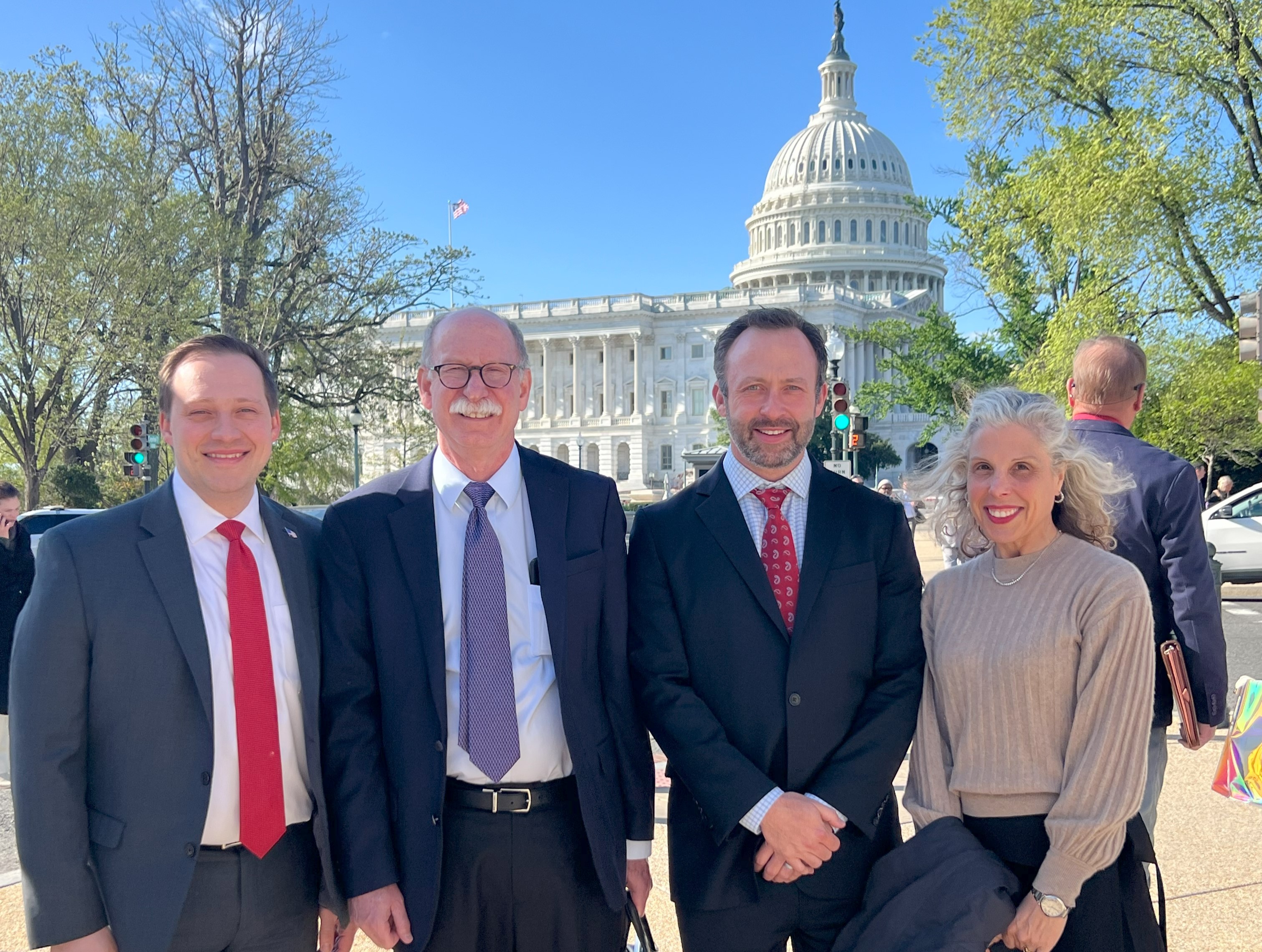Advocacy and Growth: Reflections on the Future of Independent UrologyAhead of the 2024 LUGPA Annual Meeting, LUGPA Chief Executive Officer, Celeste Kirschner, caught up with outgoing LUGPA President, Dr. Evan Goldfischer, to discuss the organization’s recent accomplishments, as well as the challenges and opportunities facing independent urology. In this conversation, they explore how LUGPA continues to protect and strengthen independent practices and what lies ahead for the future of health care. Celeste Kirschner: Evan, as your term as president comes to a close, let’s start with an overview. What accomplishments are you most proud of over the last year? Dr. Goldfischer: I’m most proud of our continued work in advocacy—particularly our deepened relationships with members of Congress. We’ve ensured that the voice of independent urology is heard at the highest levels. This advocacy translated into real progress on issues like the Medicare Physician Fee Schedule and 340B reform, both of which are critical to the survival of independent practices. LUGPA was instrumental in getting H.R.5226, the Seniors Access to Critical Medications Act, passed and hope to shepherd it through the Senate during the lame-duck session of Congress. Creating the Community Practice Coalition was another milestone. By joining forces with other specialties, we amplified our advocacy and made sure CMS and Congress understand the unique value independent practices bring to health care. We also expanded member programming in meaningful ways. We launched the ASC Academy to provide education on ambulatory surgery centers and introduced the UroMA program to meet the growing demand for well-trained medical assistants in our practices. These initiatives are directly tied to what our members told us they needed, and I’m proud of how we’ve responded. Celeste Kirschner: You’ve mentioned advocacy—something that remains at the heart of LUGPA’s mission. How has LUGPA led the way on advocacy issues over the last year? Dr. Goldfischer: 2024 has been a big year for us in advocacy. The formation of the Community Practice Coalition strengthened our voice on critical issues like Medicare reimbursement and 340B reform. This coalition allowed us to join forces with other independent specialties, which gave our efforts more weight in discussions with lawmakers. For example, we’ve been focused on the Medicare Physician Fee Schedule, ensuring that reimbursement reflects the real value of independent practices, which are often more efficient and provide better patient outcomes than larger systems. Another key moment was Dr. Richardson's testimony before the House Ways and Means Committee. He spoke directly about the dangers of health care consolidation, which is eroding patient choice and creating monopolies. That testimony was a powerful reminder of how important it is to keep fighting for policies that protect patient access to independent care. We’ve also made significant strides in advocating for chronic care management reforms and led discussions around AI regulations in health care—both areas that will shape the future of how we practice medicine. Celeste Kirschner: Even with all this progress, there’s still more work to be done. What areas still need our collective attention? Dr. Goldfischer: Reforms to Medicare reimbursement are absolutely critical. The current payment structures place far too much financial pressure on independent practices, particularly those in underserved areas. Without meaningful changes, many practices will struggle to stay viable. Prior authorization is another major obstacle. It causes unnecessary delays in patient care and contributes significantly to physician burnout. Streamlining this process would make a huge difference in how quickly and effectively we can care for patients. Additionally, workforce shortages are a growing concern. We need to make urology more attractive to the next generation of health care providers, and part of that means reducing the administrative burden and creating better support structures within our practices. We’ve also been advocating for in-office dispensing reform, which would allow us to dispense medications directly to patients, improving both efficiency and outcomes. That’s a legislative battle we’re deeply invested in. Celeste Kirschner: The health care landscape is constantly evolving. How would you say LUGPA ensures it remains relevant and continues to protect independent urology? Dr. Goldfischer: Adaptability is key. Our board and staff are constantly monitoring changes in health care—whether it’s new regulations or shifts in patient demographics. We’ve positioned ourselves to be proactive rather than reactive, which is essential given the external forces that can disrupt our practices. Whether it’s the rise of AI or changes in reimbursement models, we’ve made it a priority to stay ahead of the curve. One way we do this is by listening closely to our members. We created programs like the UroMA program and the ASC Academy because our members told us these were areas where they needed support. We’re not just reacting to changes—we’re anticipating them and providing the tools our members need to thrive. Celeste Kirschner: In addition to advocacy, what are some of the ways LUGPA has supported its members over the past year? Dr. Goldfischer: We’ve been focused on providing valuable resources to help our members navigate the complexities of independent practice. For example, the Medicare Fee Schedule Calculator has been incredibly helpful for practices, allowing them to model how reimbursement changes will impact them financially. We’ve also continued to offer education on cutting-edge treatments through our Annual Meeting CME, the Prostate Cancer and Bladder Cancer Academies in partnership with Specialty Networks, and the Crossfire Series with PlatformQ. These programs help our members stay up to date on the latest in urologic care. On top of that, we released the third edition of the Practice Management Book and provided monthly public relations materials for practices to use in their own outreach. We’ve also hosted three regional meetings, a resident summit and a job fair to support the next generation of urologists. Finally, our DEI initiatives have been successful. For the first time, we have two women on the LUGPA Board of Directors. Celeste Kirschner: Looking forward, what do you see as the greatest opportunities for independent urology groups? Dr. Goldfischer: I think independent urology practices are in a great position to grow and thrive. We’re seeing signs from both CMS and Congress that they understand how important it is to preserve independent practices. There’s growing recognition that independent providers deliver high-quality, personalized care at a lower cost than large hospital systems, and that message is starting to resonate at the policy level. The demand for urologic services is also on the rise, which means there’s a huge opportunity for practices to expand their footprint in their communities. As long as we continue advocating for policies that protect our ability to practice, I believe the future is bright for independent urology. Stay tuned for more insights from the LUGPA Annual Meeting, where we’ll continue to explore the future of independent urology. blog |




